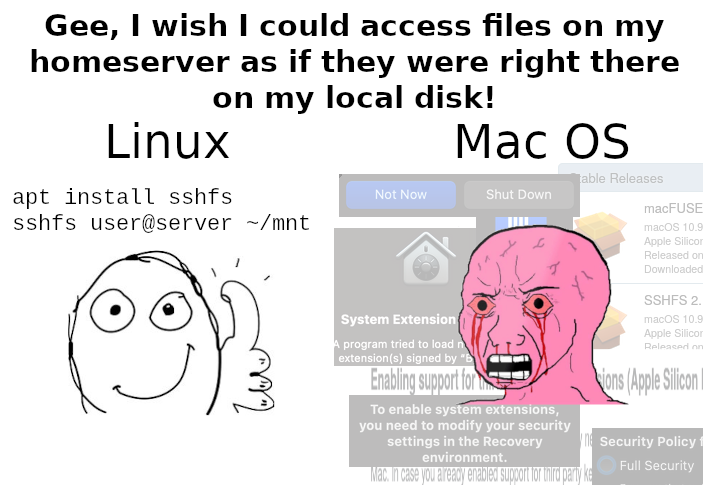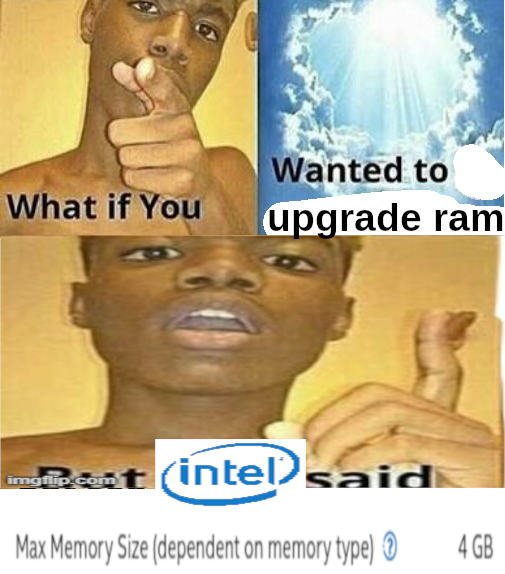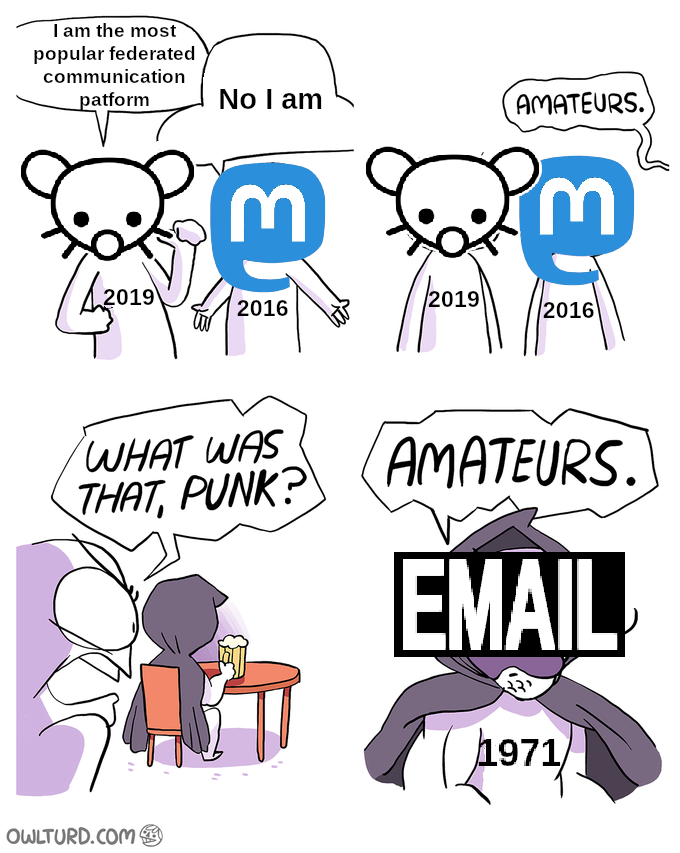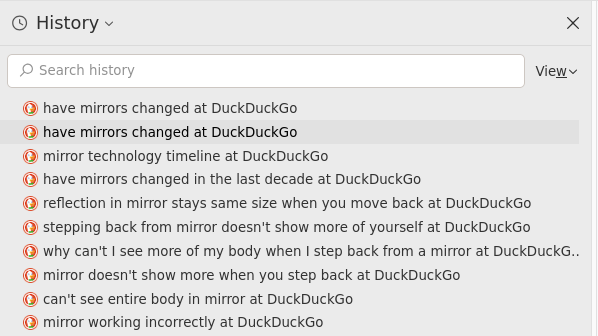hmm interesting. Will take a look.
renzev
The reason they don't want you to unlock your bootloader is because of security....
...security of their revenue stream, that is.
I guess if he's getting paid to do the interviews then it's technically passive... wait no, then the whole interviewer thing would just count as advertising for his vending machine business
Hey, a UBI supporter! Just curious, how can UBI be implemented in a way that doesn't result in hyperinflation? If a society was to ration out food/shelter/necessities directly, I understand how that would work. But if it's done through the intermediary of money, what would prevent the economy from entering an arms race where the producers raise prices to adapt to the new purchasing power of the population, and the government raises the UBI to keep up with the rising prices?
Assistance implies that it is temporary,
Not it does not. Ever heard of "aim assist"? "Assisted living"? "assistive touch" (the iOS feature)? I don't see how any of these are temporary.
But yeah the correct solution is indeed to change the system. There will always be naysayers who argue that "no one system can suit everybody" so I guess we'll need a system of systems.
They don’t actually believe any of this shit.
I agree with everything else that you're saying, but I wouldn't be so sure about this. Have you ever noticed how it's much easier to start online flame wars when you actually believe in the batshit stance that you're arguing as opposed to pretending to believe it for the sake of trolling? I think it's a similar thing here. I don't think humans are that good at compartmentalising, so in order to do something performatively so often and so well you have to trick your mind into actually believing it in a sort of corrupt way. I know this makes me sound like a middleschooler, but I think George Orwell's concept of doublethink is very much real in cases like these.
I question whether the people hollering that "X11 is held together with duct tape" have actually tried using X11 in the recent years. It's surprisingly stable. You never have to fiddle with Xorg.conf anymore, it's all automatic. The only parts where it really shits the bed, in my experience, is either if you're trying some extremely non-standard setup like mixing and matching wildly different generations of graphics cards, or in cases of deliberate sabotage by gn*me devs like client-side decorations and shadows. I really wished that the X11 -> wayland transition would be just like the pulseaudio -> pipewire transition where a desperately broken system that was causing issues for users got replaced -- in a matter of months -- with a successor that was not only 100% compatible but offered cool new features on top of stability improvements. But this has just not been the case so far. Wayland has been "the future of the linux desktop" for nearly twenty years, and it's still not quite there yet. X11 mostly just works, it isn't abandoned, it's finished. And what exactly are the new features we should be looking forward to in wayland? Isolation between clients is very cool I must confess, but did it really necessitate an entire protocol overhaul? QubesOS has had that feature working under X11 for over a decade. This guy on github managed to get it working with off-the-shelf X11 tunneling tools. Nevertheless, I'm still optimistic for wayland. The already existing backwards compatibility with X11 is impressive, and I think with enough work it might just be viable as the successor.
When people say that they are “anti-DEI” in the US, they mean that they want a society where the only people with power are white, protestant men.
Source: trust me bro
Is it really that implausible that some people really do just want to have diversity, inclusion, and equity the "old way" by simply giving everyone an equal opportunity to participate instead of embracing DEI ideology? It's a huge leap in logic to just assume that anyone who doesn't subscribe to some specific ideology that claims to be tolerant must secretly be opposed to tolerance itself. I think all of those people yelling "nazi" at anyone remotely critical of DEI are just projecting.
I mean yeah like you can be a pedant about it but all in all its a statement that makes sense. Apps on both android and ios are very sandboxed, even if you go out of your way to install malware there's very limited damage it can do, barring zerodays in the sandboxing itself.
Gosh I really don't like this art style but it's better than whatever I can draw so whatever.
Huh, this person doesn't like starbucks
They must be autistic
Peak .world behavior right there












Huh? How did you go from "people should have equal opportunities" to lynching and firing pregnant women? At this point you're just saying whatever you want.
Plus, lmao at the hypocrisy of calling DEI a "boogeyman" while simultaneously accusing anyone disagreeing with you a racistsexistlyncher. It's totally real, you're proving it yourself.